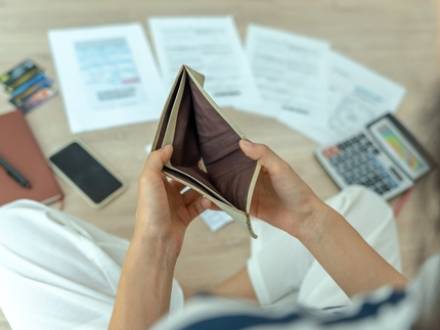 28 N. 1st St., Suite 101, Geneva, IL 60134
28 N. 1st St., Suite 101, Geneva, IL 60134
What Can Creditors Do After I File for Bankruptcy?
 Bankruptcy is a legal process that can help redeem someone from overwhelming debt. If a person files for Chapter 7 bankruptcy, his or her assets are liquidated and used to pay back creditors. If a person files for Chapter 13 bankruptcy, he or she works out a court-approved repayment plan to pay back creditors over three to five years. In either case, the court process can take several months.
Bankruptcy is a legal process that can help redeem someone from overwhelming debt. If a person files for Chapter 7 bankruptcy, his or her assets are liquidated and used to pay back creditors. If a person files for Chapter 13 bankruptcy, he or she works out a court-approved repayment plan to pay back creditors over three to five years. In either case, the court process can take several months.
Within that time, creditors would still be able to pursue the filer if not for a concept called the "automatic stay." The automatic stay stops creditors from collecting debts, but only up to a point. For more details or for any bankruptcy matters, consult an Illinois bankruptcy attorney.
What Is the Automatic Stay in Bankruptcy?
When a debtor files for bankruptcy, it triggers the automatic stay. This law keeps creditors at bay by prohibiting them from pursuing the borrower for certain debts and preventing them from engaging in collection efforts. The automatic stay, for example, protects the filer from:
-
Utility disruptions: If the debtor is behind on utility payments, providers are not allowed to shut off his or her power, water, gas, or other services.
-
Wage garnishment: A common form of debt collection is wage garnishment, where the borrower’s debts are automatically deducted from his or her pay. Once the borrower files for bankruptcy, the automatic stay freezes and blocks attempts at wage garnishment.
-
Eviction: The automatic stay can prevent a landlord from evicting the filer due to non-payment. However, if the eviction has other justifications or if the landlord had already received a judgment before the bankruptcy filing, the tenant may not be protected by the automatic stay.
-
Foreclosure: The automatic stay can temporarily freeze a foreclosure on the debtor’s home. However, the lender may be able to petition the court for an exemption from the stay.
-
Collection efforts: Once bankruptcy is filed, creditors cannot contact the debtor for unsecured debts like medical bills or credit card balances. This means no calls, emails, or letters.
However, while the protection from the automatic stay is significant, it is limited.
What Can Creditors Do After I File for Bankruptcy?
There are certain actions creditors and lenders can take after a borrower files for bankruptcy, despite the automatic stay:
-
Recover secured debts: Creditors can still pursue a borrower for secured debts like mortgages and car loans by petitioning the bankruptcy court to lift the automatic stay.
-
Recover new debts: Even unsecured debts are not protected by the stay if a borrower incurs them after filing for bankruptcy. If a person files for bankruptcy and then takes out a personal loan, for example, the lender may pursue the filer for that debt.
-
Collect family maintenance: If a person has been ordered by a court to pay family maintenance such as child support or alimony, those payments are not covered by the automatic stay.
-
Collect taxes: The automatic stay does not protect a borrower from debts owed to the government. The Internal Revenue Service (IRS) can still pursue the filer for unpaid taxes.
Contact a Kane County, IL Bankruptcy Lawyer
Bankruptcy law is complex, and it is hard to know what protections are available to you after you file for bankruptcy. Contact DLAW, PC to get informed about your options and receive excellent legal advice about bankruptcy matters. Get a free consultation with a DuPage County, IL bankruptcy attorney today by calling 331-222-7978 now.


 331-222-7978
331-222-7978

